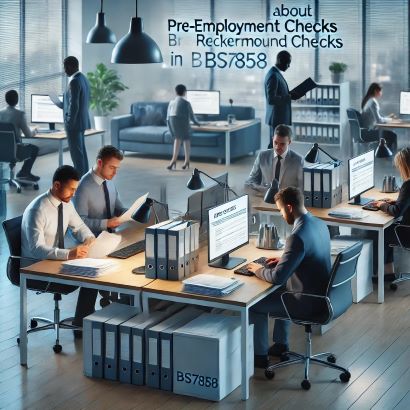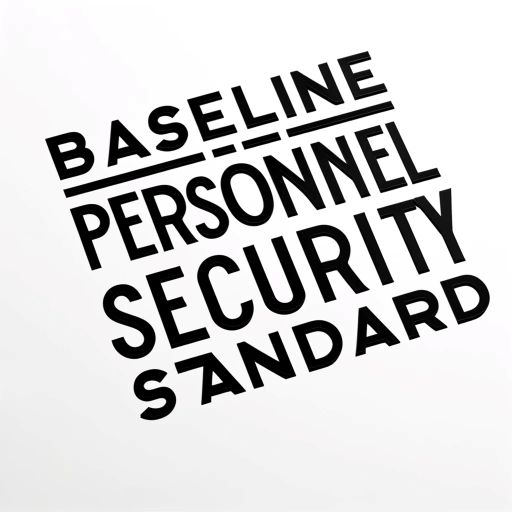

When aiming for BPSS clearance, ensuring you have the right documents is paramount. When comparing BPSS checks to other screening processes, it becomes evident that BPSS focuses specifically on verifying identity, right to work status, criminal records, and employment history. Identity checks are essential, requiring verification through official documents to confirm personal details.
This adherence to data protection laws is crucial in maintaining the trust of applicants and the legitimacy of the screening process. This transparency helps maintain trust between the employer and the employee, and ensures that the process is viewed as legitimate and fair. right to work checks as well as a basic dbs checks are part of bpss clearance in the uk.
The BPSS clearance process also assesses the nationality and immigration status of the applicant, confirming their eligibility to work in the UK. While BPSS checks aren't formal security clearances, they're vital for accessing UK OFFICIAL and occasional UK SECRET assets.
The role of BPSS clearance in maintaining public trust cannot be overstated. By organizing and presenting these essential documents accurately, you can expedite the verification process and demonstrate your suitability for accessing UK OFFICIAL assets.
Employers must ensure that information is not used discriminatorily and is stored only as long as necessary for security purposes.
Posted by Jasmine Roberts on 2024-01-25

Discover BPSS requirements for IT and cybersecurity roles.
Posted by Jasmine Roberts on 2023-12-24
Posted by Jasmine Roberts on 2023-10-07

Discover what BPSS clearance is and why it's essential in the UK.
Posted by Jasmine Roberts on 2023-07-23
Posted by Jasmine Roberts on 2023-05-27
Posted by Jasmine Roberts on 2023-05-27
Posted by Jasmine Roberts on 2023-02-02
To guarantee your suitability for BPSS clearance, gather the necessary verification documents, including proof of right to work in the UK and identity verification papers such as a passport or driver's license. Risk identification and mitigation By ensuring that individuals in sensitive positions are thoroughly vetted, organizations can assure the public that they are taking all necessary steps to safeguard sensitive information and critical infrastructure. BPSS checks are generally conducted as a one-time check prior to employment to establish a baseline of trust and security clearance.
When undertaking BPSS clearance, organizations must verify four main components: identity confirmation, employment history, criminal record, and right to work status. It provides a comprehensive assessment of an individual's suitability for sensitive roles, helping to maintain the integrity and security of crucial operations.
Key components of BPSS clearance encompass verifying the right to work, conducting identity checks, checking criminal records, and confirming employment history. As the industry evolves, here are some key aspects to ponder:1. **International Background Checks:** Expect a growing emphasis on international screenings to guarantee thorough vetting for BPSS compliance.2. **Automation and Digital Platforms:** Look out for the adoption of automation and digital tools to streamline the BPSS clearance process, enhancing efficiency.3. **Continuous Monitoring:** Anticipate standard practices of continuous monitoring and periodic re-screening to uphold BPSS compliance over time.4. **AI Integration:** The integration of artificial intelligence and machine learning is likely to improve the effectiveness of BPSS checks, enhancing overall security measures.
However, depending on the nature of the work and the level of security required, BPSS checks might be revisited if a person's role or security clearance level changes. Automation tools and online databases allow for rapid identity verification and employment history checks, reducing the time it takes to complete a BPSS clearance compared to manual processes.

These documents are essential in demonstrating your work experience and financial records. The importance of BPSS clearance lies in its role in verifying essential aspects of individuals' backgrounds for positions involving sensitive information access. These additional investigations could involve checks on overseas travel history for periods exceeding 6 months within the last 3 years.
Illegal workers may pose a security risk as they might have circumvented the usual checks and processes designed to protect sensitive information and environments. Keep in mind that additional checks like international criminal record screenings might come with extra fees.
It's imperative to make sure that the identification documents you provide are original, unexpired, and legitimate. This step ensures that the candidate is who they claim to be and helps prevent identity fraud.
Your proof of identity, employment history, and national and immigration status play an essential role in this process. Compliance with BPSS checks is not only about adhering to legal requirements but also about ensuring the safety and security of governmental operations and sensitive information.


When looking into the cost of a BPSS check, you'll find that it can vary based on the service provider and the specific checks needed. BPSS clearance is essential to prevent corruption and ensure these roles are filled by individuals who are beyond reproach. DBS checks, on the other hand, are regulated by the Home Office and are designed to prevent unsuitable people from working with vulnerable groups.

This process not only supports the legal operation of businesses but also protects against potential security risks associated with unauthorized employment. Ensuring you have all these documents in order will help streamline the verification process and increase the chances of successfully obtaining BPSS clearance. Generally, a BPSS check can take anywhere from two weeks to a month to complete.
Temporary staff within government organizations may also need a BPSS check as part of pre-employment screening procedures. In contrast, BS7858:2019 requires that the screening process is updated every three years, or more frequently depending on company policy, to ensure that the security status of employees does not change over time.
BPSS clearance is usually valid for 3 years from the date of issue.2. This screening, which is a baseline personnel security standard in the UK, includes checks like Basic DBS Check, ID Check, Right to Work check, and 3-Year Employment History Check.
This ensures that any changes that might affect an individual's security status are identified and managed effectively, maintaining continuous security compliance. Airport security staff are required to have BPSS clearance because they work in sensitive zones and deal with threats to national and international travel security.
Employers or vetting agencies collect the necessary documents and information from the candidate, which are then meticulously verified against various databases and through direct contact with relevant institutions. However, it also necessitates stringent measures to guard against potential cybersecurity risks. This proactive approach ensures that any changes in an employee's background that could affect their security status are promptly addressed, maintaining the integrity of sensitive environments and protecting national interests.
Both types of checks are crucial, yet they serve different and complementary purposes within the spectrum of employment background screenings in the UK. Each document serves as a puzzle piece in the larger picture of your suitability.
The scope and depth of the checks under these two standards vary significantly. The BPSS is primarily concerned with establishing a baseline of trustworthiness and integrity, ensuring that all employees meet a standard level of security before they commence employment.
Employers might probe deeper into any gaps in employment history surpassing 31 days as part of the BPSS process. The employer must inspect these documents to ensure they are valid and belong to the individual presenting them.

BPSS vetting includes checking identity details such as name, address, and date of birth, along with employment history, criminal record, and legal right-to-work status.
BPSS Clearance is legally required for certain roles involving access to sensitive government data or secure environments. Employers must comply with UK vetting policies.
Employers verify BPSS eligibility through document checks, identity verification, criminal records, and references. Accurate and complete submissions speed up the process.
Yes, international applicants can apply for BPSS Clearance if they meet the eligibility criteria, including having legal authorization to work in the UK and providing required documentation.
BPSS Clearance is generally not transferable. Each employer may conduct its own vetting process to ensure compliance with internal security policies.
Renewal of BPSS Clearance depends on the employer’s policies and job-specific requirements. Some employers may require periodic reviews to maintain clearance validity.
Roles in IT security, government services, defense contracting, and public sector administration often require BPSS Clearance due to their access to sensitive information and secure systems.
Delays in BPSS Clearance can occur due to incomplete applications, missing documents, or extended reference checks. Applicants should ensure all information is accurate and complete.